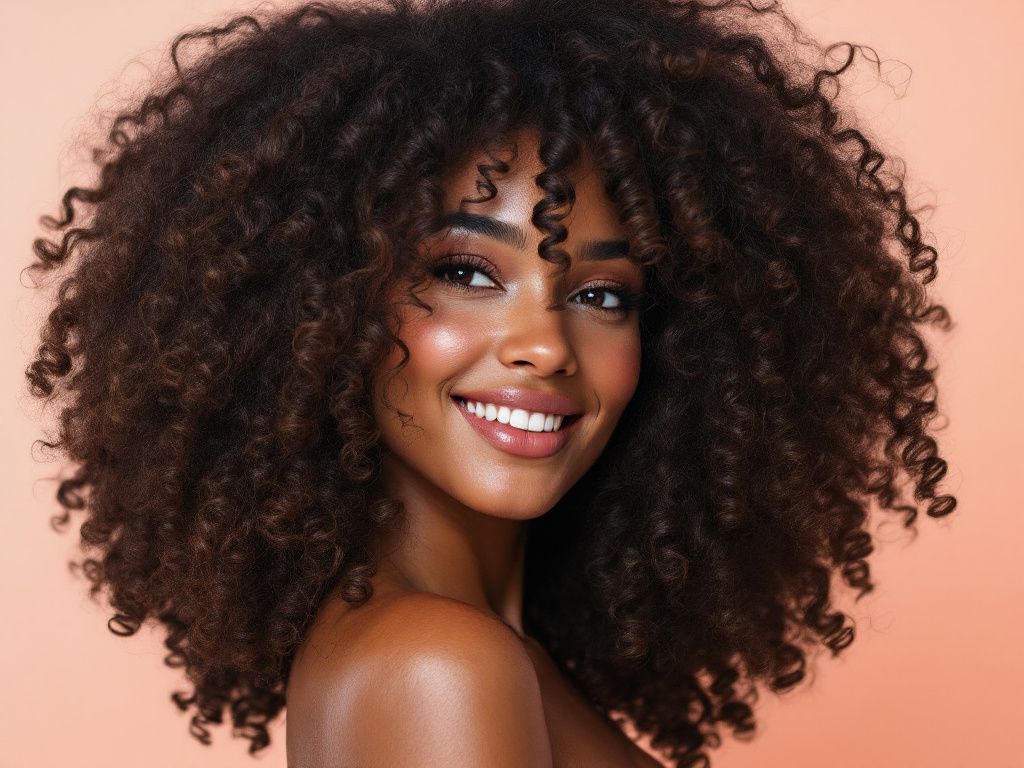
Curly hair, with its unique structure and characteristics, requires targeted care and treatments to maintain optimal health and appearance. As an expert trichologist, my goal is to translate complex hair science into actionable advice for enhancing your curls.
Understanding the Structure of Curly Hair
Curly hair is characterized by its asymmetrical follicle shape, which creates a spiral configuration. This genetic variation leads to unique challenges such as dryness, fragility, and a heightened susceptibility to damage. Research shows that curly hair tends to have a lower moisture content compared to straight hair, necessitating tailored hydration strategies.
Addressing Common Curly Hair Concerns
1. **Dryness and Frizz**
Curly hair’s texture often impedes the distribution of sebum from the scalp to the hair shaft, resulting in dryness and frizz. Evidence-based studies indicate that the integration of natural oils such as argan oil and jojoba oil can efficiently mimic sebum and penetrate the hair cuticle.
**Product Recommendation:**

- MoroccanOil Treatment Original: Rich in argan oil, which contains oleic and linoleic acids, known for their moisture-retention capabilities, this product enhances shine and manageability.
2. **Breakage and Fragility**
Due to its uneven surface, curly hair is more prone to mechanical damage. A 2017 study published in the *Journal of Cosmetic Science* underscores the importance of using protein treatments to fortify the hair shaft.
**Product Recommendation:**
- Olaplex No.3 Hair Perfector: Incorporating bis-aminopropyl diglycol dimaleate, this bond-building treatment helps repair and strengthen internal keratin structures, reducing breakage.
3. **Defining Curls and Maintaining Shape**
Maintaining defined curls can be challenging, especially in varying humidity conditions. Glycerin, a humectant, is beneficial in drawing moisture into the hair, augmenting curl elasticity and definition. However, in high-humidity environments, glycerin may cause excessive swelling. Opt for balanced formulations.

**Product Recommendation:**
- DevaCurl SuperCream Coconut Curl Styler: This product combines glycerin’s hydrating properties with coconut oil, a reliable occlusive agent, providing both definition and moisture.
Tailored Regimen for Different Curly Types
Type 2 (Wavy)
Focus on lightweight, frizz-reducing formulas that enhance natural waves without heaviness.
**Suggested Routine:** Use a lightweight curl cream infused with protein hydrolysates for strength and jojoba oil for manageable texture.
Type 3 (Curly)

Type 3 requires more substantial moisture through conditioning. Ingredients such as shea butter and hydrolyzed silk streamline curls while reducing frizz.
**Suggested Routine:** Incorporate a deep-conditioning mask regularly for hydration and use sulfate-free cleansers to prevent moisture loss.
Type 4 (Coily/Kinky)
Moisture retention is paramount. Research supports layering methods (e.g., the LOC method – Liquid, Oil, Cream) to preserve hydration.
**Suggested Routine:** Implement styling creams with emollients like shea butter, partnered with conditioning oils to lock in moisture.
Conclusion
An evidence-based approach to curly hair involves understanding its physiology, using ingredients with proven efficacy, and tailoring products to meet varying demands based on curl type. For luscious, healthy curls, it’s essential to carefully select and faithfully follow a regimen suited to the unique needs of your hair. As ongoing studies expand our knowledge, staying informed will empower you to make the best choices for your curls.
Frequently Asked Questions
What are the best haircuts for curly hair?
The best haircuts for curly hair often involve techniques that enhance the natural texture and reduce frizz. Cuts like the “deva cut” or “curly cut” are tailored to the individual’s curl pattern and can help define curls and reduce bulk. It’s important to find a stylist experienced in cutting curly hair[5].
How can I improve my curly hair care routine?
To improve your curly hair care routine, consider using sulfate-free shampoos, deep conditioning treatments, and styling products designed for curls. Techniques like the “plopping” method or using a diffuser can also help enhance curl definition and reduce frizz[5].
What products are best for curly hair?
The best products for curly hair typically include leave-in conditioners, curl creams, and gels that provide hold without weighing down the curls. Look for products with natural ingredients that hydrate and define curls[5].
How often should I wash my curly hair?
It’s generally recommended to wash curly hair every 5 to 7 days to maintain moisture and prevent dryness. However, this can vary based on your hair’s specific needs and lifestyle[5].
References

Leave a Reply